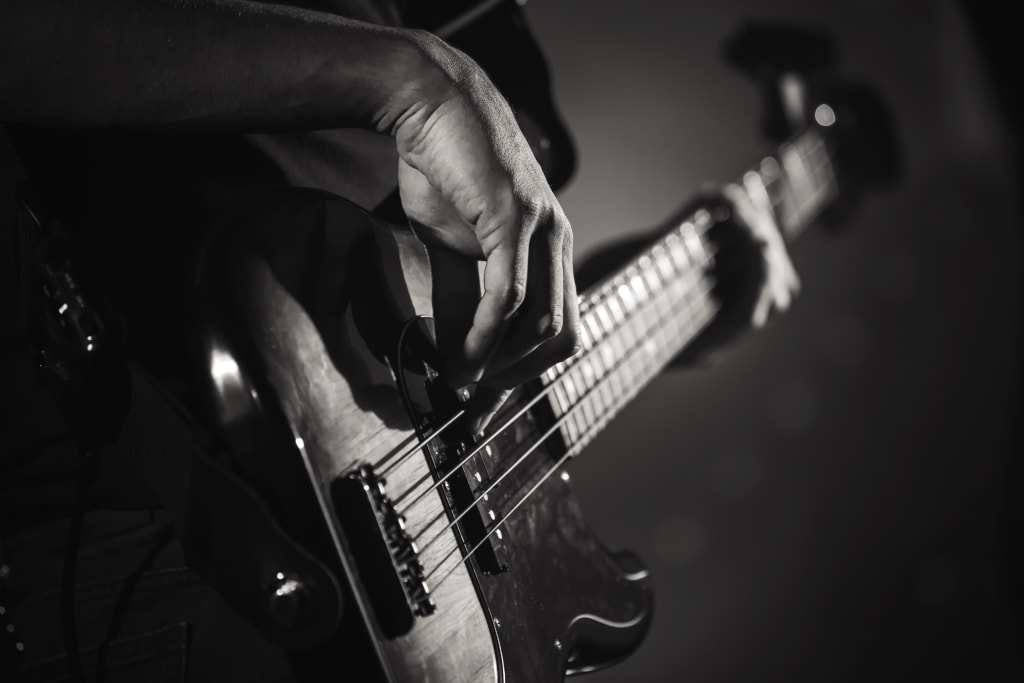The Age of Musicpreneur: The Business Side of Music By Eric Dalius
Harmonizing Art and Commerce: Unlocking the Potential of the Musicpreneur Era

The world of music has evolved drastically in the past few decades, expanding beyond mere artistry into an intricate tapestry of business, technology, and creativity. Gone are the days when musicians relied solely on their creative prowess to find success. In the modern music industry, artists don their entrepreneurial caps as often as their fedoras. Welcome to the era of the "Musicpreneur," a time that merges the melodic waves of music with the dynamic terrain of business.
The Emergence of the Musicpreneur
In accordance with the views of Eric Dalius, the Executive Chairman of MuzicSwipe, the advent of the digital age brought about a paradigm shift in the music industry. The rise of music streaming platforms, social media, and direct-to-fan marketing tools has played a pivotal role in the birth of the Musicpreneur. These changes have handed the power back to the artists, equipping them with unprecedented control over their music, brand, and business.
Musicians no longer depend on record labels to launch their careers; they now self-release music, manage their brands, interact directly with their fans, and leverage data to make strategic decisions. This democratization of the music industry has fostered a new breed of independent artists – the Musicpreneurs. Successful Musicpreneurs like Chance the Rapper and Taylor Swift, who have leveraged their musical talent and business acumen, are testimony to the impact and potential of this new model.
Understanding the Musicpreneur
At its core, a Musicpreneur is an individual who applies entrepreneurial principles to a career in music. They wear many hats - they are artists, business managers, marketers, and networkers, all rolled into one. The line between creativity and commerce in music has blurred, giving rise to the multifaceted role of a Musicpreneur. This hybrid role allows artists to nurture their creative instincts while navigating the intricacies of the business world.
Musicpreneurs are not only masters of their craft but also savvy business people who understand their market, brand themselves effectively, and manage their finances strategically. In the age of Musicpreneurship, musicians become CEOs of their own enterprise, charting the course of their career, leveraging opportunities, and overcoming challenges with entrepreneurial spirit and resilience. The business side of music, thus, is not just about making money, it's about empowering artists to take control of their own destiny in the complex and exciting world of music.
Becoming a Successful Musicpreneur
Becoming a successful Musicpreneur is a challenging yet rewarding journey that requires a blend of musical talent, business acumen, and networking skills. Let's delve into the steps involved.
Nurture Your Musical Talent: Being a Musicpreneur begins with having a passion for music and the talent to create it. Whether it's singing, songwriting, or playing an instrument, it's essential to hone your craft.
Develop Business Acumen: The music industry is a business, and understanding its dynamics is crucial. You need to be aware of how to market your music, manage finances, and understand contracts and copyrights.
Build Your Brand: As a Musicpreneur, you're not just selling your music - you're selling yourself. Creating a strong personal brand that reflects your musical style and persona is crucial in connecting with your audience.
Manage Finances: You need to strategize your financial management, considering your income streams (such as gigs, merchandise, royalties, and digital platforms) and costs (such as recording, touring, marketing).
The 7 Key Steps to a Successful Musicpreneurship
1. Discover Your Unique Musical Niche: In an industry as vast as music, finding your unique sound and style helps you stand out from the crowd and connect with your target audience.
2. Develop a Business Plan: Like any business, you need a plan. This should include your brand identity, marketing strategy, financial plan, and long-term goals.
3. Network and Collaborate: The relationships you form in the industry can open doors for you. Collaboration with other artists can expose you to new audiences and provide learning opportunities.
4. Create and Manage Your Online Presence: In the digital age, your online presence is critical. Regularly updating your social media platforms and engaging with your fans helps maintain interest and build a loyal fan base.
5. Diversify Your Revenue Streams: Don't rely solely on one income source. Explore possibilities like live performances, streaming revenues, merchandising, licensing, and teaching music.
6. Protect Your Intellectual Property Rights: Registering your music with a performing rights organization ensures you get paid for your work when it's used commercially.
7. Continually Learn and Evolve: The music industry is dynamic, and keeping up with the latest trends and adapting to changes is key to longevity in this business.
The Future of Musicpreneurship
As we peer into the future of the music industry, the rise of the Musicpreneur shows no sign of slowing down. Technology continues to disrupt traditional models, handing even more control to the artists, according to Entrepreneur Eric Dalius.
Artificial Intelligence is poised to become a game-changer, with new tools to assist in composing, arranging, and producing music. Virtual and Augmented Reality can open up new avenues for performances and fan engagement, and blockchain technology can offer novel ways to manage contracts and royalties, providing more transparency and fairness to artists.
As we venture into this brave new world, the Musicpreneur must continue to evolve, adapting to new technologies and harnessing their potential. The future belongs to those who can blend their creative instincts with innovative business practices. The Musicpreneur is not just a passing trend, but a fundamental shift in the way we understand the business of music.
Success Stories of Musicpreneurs
To truly appreciate the impact of Musicpreneurship, let's examine the journeys of two successful Musicpreneurs who have transformed the music industry landscape.
Chance the Rapper: An exemplar of Musicpreneurship, Chance the Rapper has shown that a musician can achieve mainstream success while remaining fully independent. He distributes his music directly to the public, avoiding traditional record deals, and controls all aspects of his brand, from music to merchandise. His innovative approach earned him three Grammy Awards for his streaming-only album, "Coloring Book," cementing his place in music industry history.
Taylor Swift: Known for her songwriting prowess, Swift is also a shrewd Musicpreneur. Her strategic move to re-record her early albums, following the controversial sale of her original master recordings, demonstrates her keen understanding of music ownership and rights. She cleverly uses her influence to negotiate fair deals and advocates for artists' rights, making her an influential figure in the business of music.
Some FAQs Answered Here For The Relevant Topic
What does it take to become a Musicpreneur?
Becoming a Musicpreneur requires a blend of musical talent, business acumen, networking skills, and a strong personal brand. It's about wearing multiple hats - being an artist, a marketer, a financial manager, and an entrepreneur.
How do Musicpreneurs make money?
Musicpreneurs diversify their income sources. They earn from album sales, live performances, streaming revenues, merchandising, licensing deals, and sometimes even teaching music.
Can I be a Musicpreneur if I'm not a musician?
While being a musician is often a part of being a Musicpreneur, it's not a strict requirement. Some Musicpreneurs are industry professionals who use their business and networking skills to promote music, manage artists, or run record labels.
How do I protect my work as a Musicpreneur?
Protecting your music is crucial. Register your music with a performing rights organization to ensure you receive royalties when your music is used commercially. Also consider copyrighting your songs.
How can I leverage social media as a Musicpreneur?
Social media is a powerful tool for Musicpreneurs. It helps you connect with fans, promote your music, build your brand, and even sell merchandise. Regular engagement and providing valuable content to your audience are key to leveraging social media effectively, according to the Executive Chairman of MuzicSwipe, Eric Dalius.
In Conclusion, the age of the Musicpreneur signals a new era in the music industry, one that is artist-centric and empowered by technology. The Musicpreneur takes control of their destiny, straddling the realms of art and commerce with finesse and vision. While the journey may be challenging, the rewards - both creative and financial - can be profound. Embracing the Musicpreneurship model could be the key to navigating the dynamic, complex, and exciting world of music in the 21st century.
About the Creator
Enjoyed the story? Support the Creator.
Subscribe for free to receive all their stories in your feed. You could also pledge your support or give them a one-off tip, letting them know you appreciate their work.





Comments
There are no comments for this story
Be the first to respond and start the conversation.